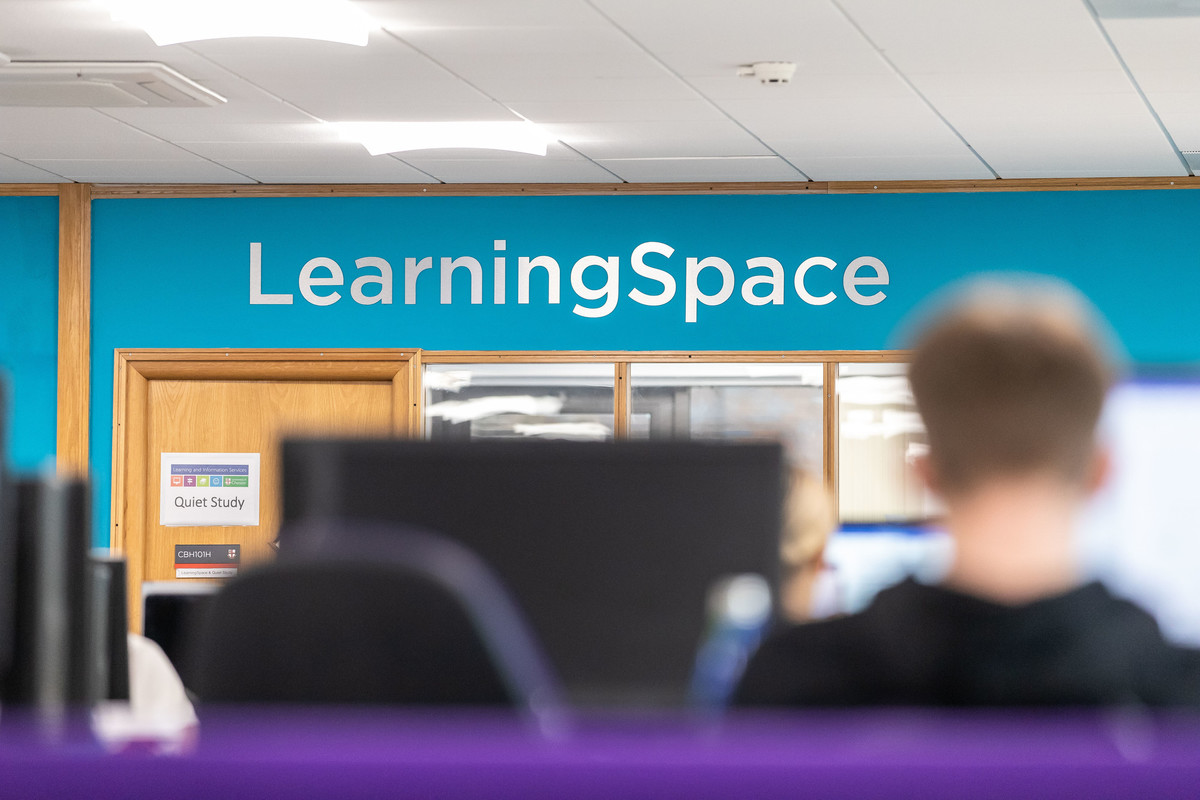International Fashion and Retail Marketing MSc

You are viewing Course summary
Course Summary
The fashion and retail industry is estimated to be worth over thirty trillion dollars and is one of the largest sectors in the world. Our International Fashion and Retail Marketing course helps you develop your skills, knowledge and competencies in marketing and digital marketing communications, thereby enabling you to effectively contribute to the success of a range of businesses across the industry.
On this course, you will be able to spend time out on professional practice where you'll apply what you have learnt to real scenarios in the workplace, giving you genuine experience and insight that will prepare you for your future career. After completing the six modules in your course, you may choose to write a Marketing Project or Learning Through Professional Practice.
A typical applicant may be a new/recent graduate, who has attained a first degree and wishes to augment that with further study to optimise their career opportunities.
There is an option to choose a Project/Placement year for this course, at an additional cost.
Optional 2-year master's to suit your needs
Choosing a Professional Placement MSc is a win-win for your career, giving you the chance to get real experience, apply your cutting-edge skills in the workplace and stand out to future employers.
In the first year you will have help from the University to find a placement, whilst developing your expertise. You will then spend your second year out in industry on placement, getting the chance to work with industry professionals and grow your network of industry contacts. Bringing the latest business school insights to industry, you will get to make a difference to the workplace and make lasting links with your employer.
Students need to find and secure their own placement, supported by the University. A preparation module will also help you to get ready for your placement.
What you'llStudy
You will complete six initial modules. Each module has 30 structured hours and 170 hours of independent guided study.
You will then choose either the Marketing Project to write a dissertation, or the Learning Through Professional Practice module to complete your workplace learning experience. There are 30 structured hours, 250 placement hours, and 320 hours of independent guided study within the Learning Through Professional Practice module OR eight structured hours and 592 hours of independent guided study within the Marketing Project module.
If you choose a placement or project year, the Research Dissertation module will be replaced by a placement or project module.
Module content:
• The nature, extent and purposes of research in marketing and marketing management.
• Research paradigms in researching areas of marketing.
• Research strategies for marketing and marketing management.
• Research designs, methods and approaches
• Research quality standards: establishing validity, reliability and generalisability
• Research instrument design and sampling.
• Research ethics.
• Research Data Management and Interpretation: collection, organisation, analysis, conclusions.
• Managing a dissertation research project.
Module aims:
The aim of this module is to enable learners to:
- Design and implement a research project proposal using methodologies and methods appropriate to research questions and objectives within the field of marketing and/or marketing management.
- Critically analyse and report research findings meeting academic and/or practitioner requirements of a marketing management research project.
- Develop appropriate skills in preparing, implementing and managing marketing projects.
Module content:
The following is illustrative of what the module will cover:
- International marketing and understanding the global environment
- Understanding market trends and opportunities for innovation and development
- Cultural diversity and the implications for international marketing and communication skills
- Development and complexities of the international marketing strategies including the global supply chain
- Intercultural marketing communications
- Implementing and coordinating international marketing operations including market entry and exit strategies
Module aims:
This module is designed to provide students with a comprehensive conceptual and contextual appreciation of all aspects of international marketing – which are hopefully addressed but, in particular, we do consider heavily the all-important cultural issues and frameworks that impact on the entire process.
The module complements the comprehensive conceptual and contextual appreciation of both buyer behaviour and marketing communications – but here in an international context.
This unique module further underpins the study of marketing management and as such is another critical and fundamental element to this pathway. It links strategic marketing to corporate strategy, and the necessary strategic decisions required in a contemporary global marketing context.
This module aims to:
- Enable students to critically evaluate theoretical underpinnings that could be employed within the field of international marketing. To enable students to apply knowledge of contemporary international marketing strategies and techniques
- Encourage students to reflect on their own experience and practice as consumers and stakeholders in a global context
- Critically reflect on the changing nature of marketing in a global/international context
- Provide a strategic appreciation of contemporary international marketing
Module content:
A programme of individual study and research project in accordance with established research principles involving the completion of the following elements:
Marketing Management Project
- Introduction and planning Marketing Management Projects
- Approaches to critically review literature and other sources of data for a marketing management project
- Justifying appropriate data collection methods
- Research ethics
- Undertaking a marketing management project
- Selecting data analysis techniques for a specified research strategy
- Techniques in forming conclusions and preparing implications and recommendations.
Module aims:
- To provide students with an opportunity to propose justified solutions to a marketing problem.
- To enable students to develop and apply their existing knowledge to a project and to enhance their ability to collect, analyse and interpret a range of sources of data.
- To enhance students’ skills to complete a significant piece of research that embodies the ability to clearly communicate a marketing issue, plan and implement a research design and evaluate data in a comprehensive and cohesive project.
Module content:
Key Themes:
The following is illustrative of what the module will cover:
- Drivers, challenges and outcomes of omnichannel marketing
- Omnichannel marketing strategy and planning for fashion and retail
- Merchandising and in store customer experience
- Building brands for international fashion and retail
- Customer journey mapping for fashion and retail
- Marketing communication tools, media, content
- Social media marketing for fashion and retail
- Omnichannel controls and metrics
- The buying process within the fashion and retail industry
- The connections between marketing, sales, user experience, product quality, retail outlet, purchasing, after-sales, brand & customer loyalty
- Understanding customer service and stakeholder relationships
Module aims:
- To enhance students’ ability to design and implement omnichannel marketing communication plans and strategies.
- To explore how omnichannel marketing communications achieves a seamless customer experience and personalised customer journey.
- To examine the use of customer data and data management to enrich omnichannel marketing communication tools, media and content.
Module content:
The module will cover the approaches to sustainability and ethics in the fashion and retail industry. The content will cover:
- Sustainable fashion and retail practices
- Ethical and responsible supply chain management
- Consumer behaviour and awareness
- Circular economy in the fashion and retail industry
- Innovation in sustainable fashion and retail
- Global perspectives on sustainability
- Sustainable materials and processes
- Fast fashion and its impact on sustainability
- Ethical production practices in fashion and retail
- Sustainable business models
- Measuring and reporting on sustainability
- Case studies of sustainable and responsible fashion brands
- Equality, diversity and inclusion within fashion and retail
- Crisis communications and management in response to ethical failures
- Manage sustainability risks in the supply chain
- Understand the concepts of sustainability and ethics and their application to the fashion and retail industry
Module aims:
- Identify and address ethical challenges in the fashion and retail industry
- Develop and implement sustainable business models
- Communicate sustainability and ethics to consumers
- Measure and report on the sustainability performance of a fashion or retail business
Module content:
The module will engage students through the use of lectures and seminar discussions. These will explore key themes and topics so that students may develop and enhance their knowledge, comprehension, analysis and application of marketing concepts, tools and theories within international and cultural contexts.
These themes and topics may include, but are not limited to:
- Historical and cultural evolution of the global fashion and retail industry
- Cultural influences on fashion and retail
- Cultural diversity and its impact on fashion trends
- Cross-cultural communication and marketing strategies
- Cultural appropriation and sensitivity in fashion
- Consumer behaviour theories
- Psychological theories influencing consumer behaviour
- Sociocultural factors affecting fashion and retail choices
- Decision-making processes in fashion consumption
- Understanding target consumers (traditional and digital)
- Examining data to gain insights and general data analysis
Module aims:
- To provide a knowledge of consumer’s psychological processes within international fashion and retail contexts.
- To develop awareness of the importance of understanding these psychological processes when developing marketing campaigns for fashion or retail.
- To explore the theoretical concepts underpinning the consumer behaviour processes and different cultural perspectives and influences.
- To explore a range of contemporary themes within international fashion and retail and consumer behaviour.
Module content:
|
This module covers some of the key skills needed by a marketing practitioner operating in a digital environment. Key Themes: The following is illustrative of what the module will cover (subject to the constant ongoing developments in this field):
|
Module aims:
The aims of this module are to:
- provide a critical understanding of the theories, concepts and frameworks relating to online consumer behaviour in different contexts;
- enable an advanced critical understanding of the various factors which influences online consumer behaviour;
- develop and evaluate different Customer profiling and customer journey mapping techniques
- facilitate the critical application of customer journey maps and personas to different contexts.
Module content:
This experiential learning module is normally negotiated as part of an overall programme of study. It supports the development of work-based solutions to real-world organisational challenges.
This module is offered as an option within a programme. Students interested in this option will work with placement coordinators / tutors to match their knowledge and skills to an appropriate placement or organisational context. As the number of placements may be limited, students will have to apply and be selected to undertake the module. This is to ensure an appropriate match between student, placement provider and project.
If students are already employed then it may be possible to use their existing employment as long as they are able to meet the requirements of the assignment, and providing the placement is approved by the placement tutor.
International students' ability to undertake this module will depend on their CAS/Visa status, and information will begiven in the module induction.
Indicative content:
- Employability and career planning;
- Writing an effective Curriculum Vitae, application and cover letter;
- Interview techniques;
- The distinctive nature of experiential learning and personal transferable skills e.g. negotiating skills, influencing skills, team working, managing self and others;
- Health and safety procedures in general; general workplace integrity; placement requirements;
- Business awareness, roles, responsibilities, stakeholders, strategy, networking, organisational context, culture and expectations
etc. - Acting sustainably in the workplace;
- Becoming a Citizen Student;
- Self-assessment of needs: identification of the range of transferable skills, competencies and attitudes employees need and employers expect graduates to possess;
- Devising a strategy for integrating into the workplace and work-based teams;
- Learning effectively in and from the workplace;
- Critical analysis/evaluation of approach to skill development and performance in the workplace.
Formulating an industry placement research/project rationale, focus and strategy; - Project Management skills – scoping, planning, minimising risk, stakeholders, resourcing, monitoring and evaluation, project closure;
- Report writing skills;
- The characteristics of the self-reflective practitioner;
- Approaches to critical reflection and performance;
- Details including the project focus, rationale and aims and proposed outcomes of the project are to be specified in the Learning Agreement;
Module aims:
This module is designed to enhance the student’s professional practice and provides a framework for the approval and accreditation of experiential learning activities undertaken in the context of a placement or organisation. These may take the form of discrete, identifiable projects or may be specific areas of learning that involve engagement with a wide range of work related activities. From an organisational perspective it may provide the opportunity for a student to engage in innovative and strategic developments for, and negotiated with, the organisation and module team and which may impact policy, procedure and practice from the projects they undertake and the artefacts they may produce.
As such, this module aims to enhance students’ prospects of gaining highly skilled graduate level employment through engagement with a university approved work placement, which will enable them to:
- develop and enhance professional level working practices;
- enhance their work readiness and employability prospects through development of high-quality transferable skills;
- create positive workplace/business impacts;
- reflect critically on their approach to, and performance in, designing and implementing organisational projects/tasks.
Our combination of academic study with workplace application provides many opportunities to better understand how to manage and make marketing decisions that impact on the success of fashion and retail businesses.
The course is designed for students who wish to gain experience of both strategic and creative approaches to fashion and retail marketing, and how to apply this in international contexts. Through studying the MSc in International Fashion and Retail Marketing, you will have opportunities to produce novel marketing campaigns for fashion and retail brands, design marketing communication plans, and explore different media formats for marketing within the fashion and retail sector.
Entry Requirements
2:2 honours degree
An honours degree in any subject, usually 2:2 or above, and/or suitable work experience, is required. Applicants whose first language is not English must provide evidence of proficiency to IELTS 6.5 with no less than 5.5 in each band or equivalent.
2:2 honours degree
Students from countries outside the UK are expected to have entry qualifications roughly equivalent to UK A Level for undergraduate study and British Bachelor's degree (or equivalent) for postgraduate study. To help you to interpret these equivalents, please click on your country of residence to see the corresponding entry qualifications, along with information about your local representatives, events, information and contacts.
We accept a wide range of qualifications and consider all applications individually on merit. We may also take into account appropriate work experience.
English Language Requirements
For more information on our English Language requirements, please visit International Entry Requirements.
Fees and Funding
£8,775for a full-time course (2025/26)
Guides to the fees for students who wish to commence postgraduate courses are available to view on our Postgraduate Taught Programmes Fees page. Here you will also find information about part-time fees and project/placement year fees.
£15,000for a full-time course (2025/26)
The tuition fees for international students studying Postgraduate programmes in 2025/26 are £15,000.
Please note: For MSc programmes where a placement or project year is undertaken there will be an additional charge of £2,750 for the placement/project year (due at the start of the second year of the course).
The University of Chester offers generous international and merit-based scholarships for postgraduate study, providing a significant reduction to the published headline tuition fee. You will automatically be considered for these scholarships when your application is reviewed, and any award given will be stated on your offer letter.
For more information, go to our International Fees, Scholarship and Finance section.
Irish Nationals living in the UK or ROI are treated as Home students for Tuition Fee Purposes.
Your course will involve additional costs not covered by your tuition fees. This may include books, printing, photocopying, educational stationery and related materials, specialist clothing, travel to placements, optional field trips and software. Compulsory field trips are covered by your tuition fees.
The University of Chester supports fair access for students who may need additional support through a range of bursaries and scholarships.
Full details, as well as terms and conditions for all bursaries and scholarships can be found on the Fees and Finance section of our website.
Your Future Career
Job Prospects
Your experience will open opportunities for a career in fashion and retail, including supply chain and marketing roles in different parts of the world including Europe, Africa, Middle East and the Far East. The MSc in International Fashion and Retail Marketing has been developed alongside industry to bring you a perfect blend of academic and practical, technical expertise that you need to compete and thrive in this dynamic industry.
Careers service
The University has an award-winning Careers and Employability service which provides a variety of employability-enhancing experiences; through the curriculum, through employer contact, tailored group sessions, individual information, advice and guidance.
Careers and Employability aims to deliver a service which is inclusive, impartial, welcoming, informed and tailored to your personal goals and aspirations, to enable you to develop as an individual and contribute to the business and community in which you will live and work.
We are here to help you plan your future, make the most of your time at University and to enhance your employability. We provide access to part-time jobs, extra-curricular employability-enhancing workshops and offer practical one-to-one help with career planning, including help with CVs, applications and mock interviews. We also deliver group sessions on career planning within each course and we have a wide range of extensive information covering graduate jobs and postgraduate study.














